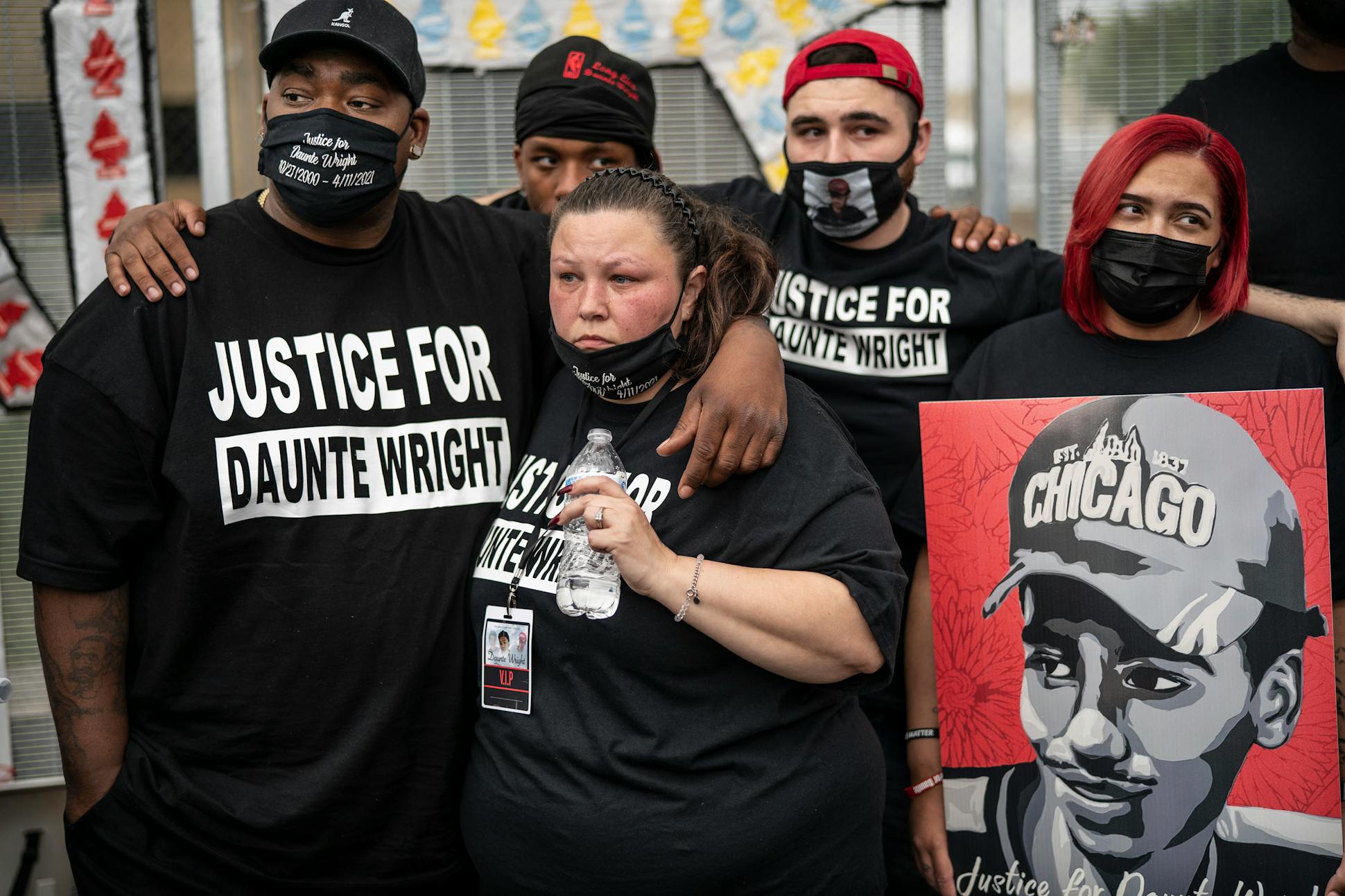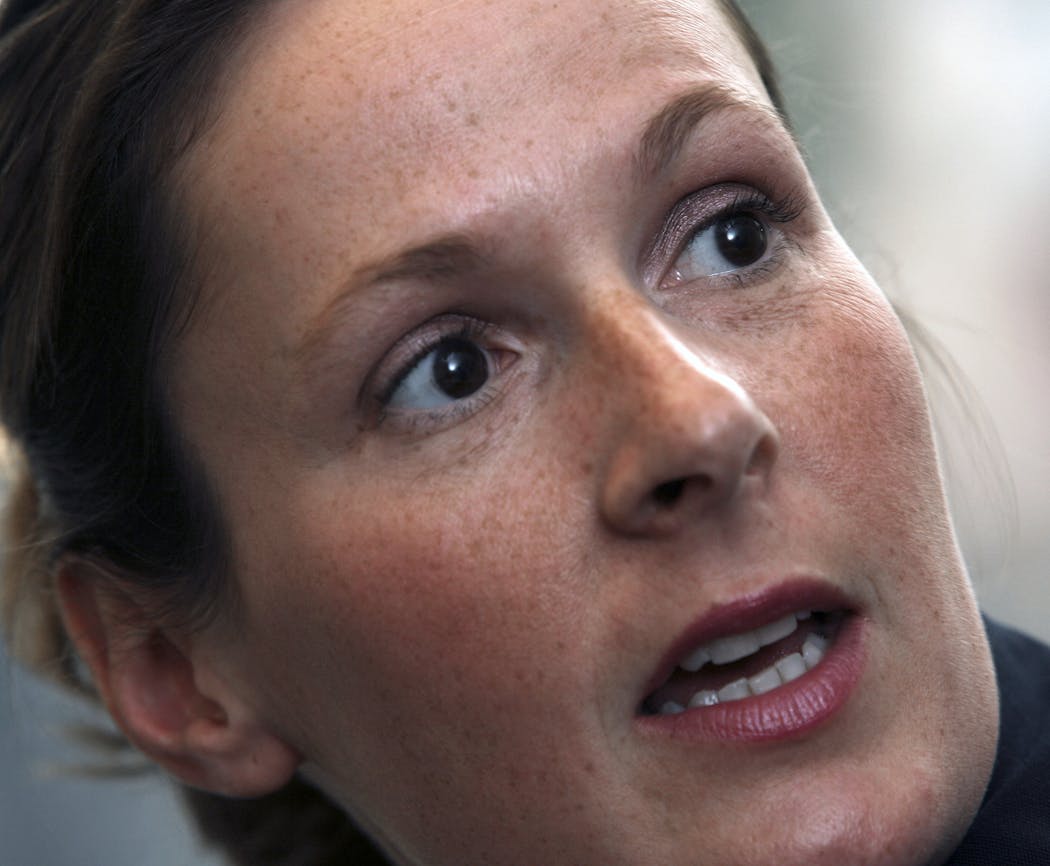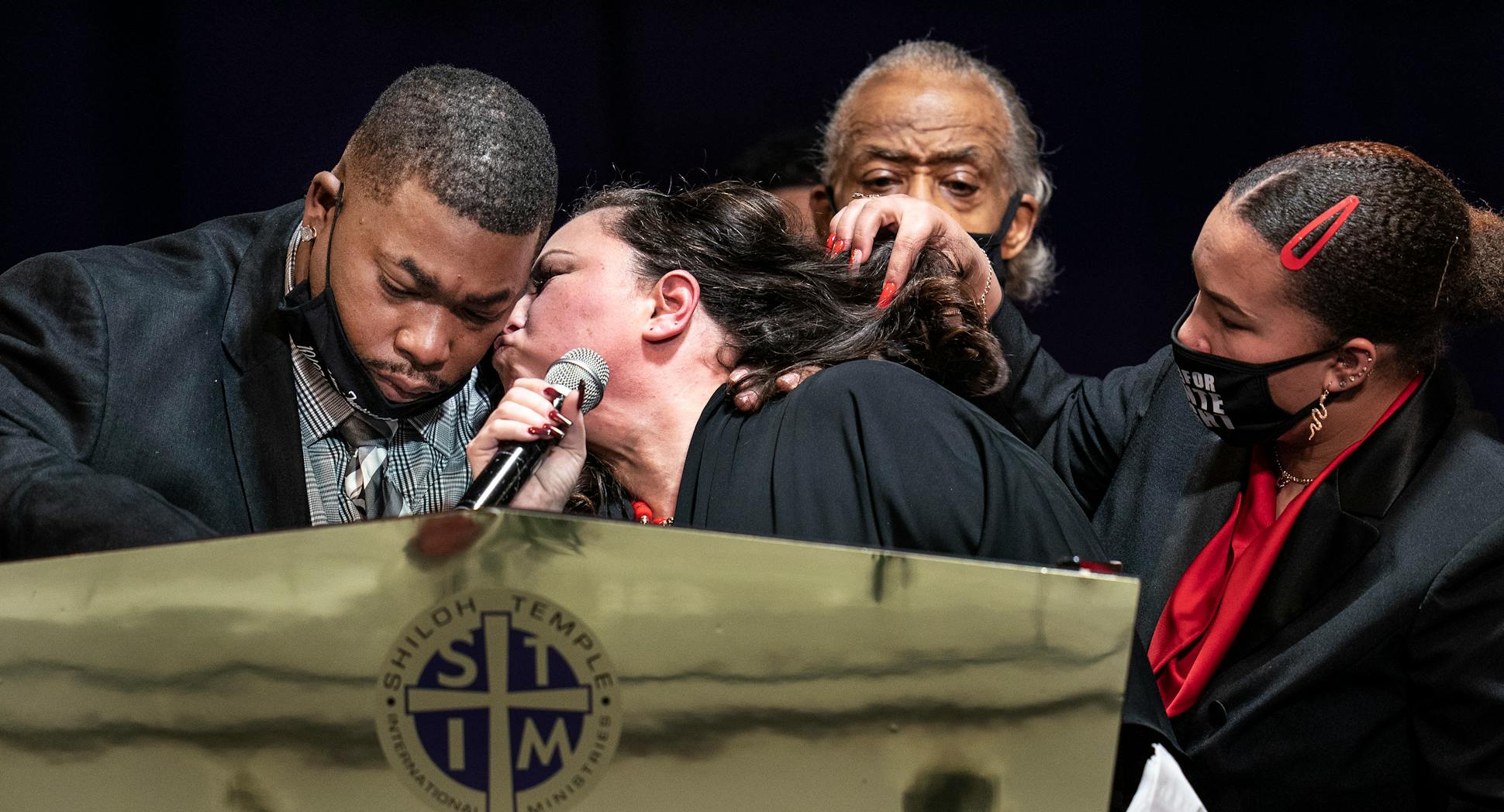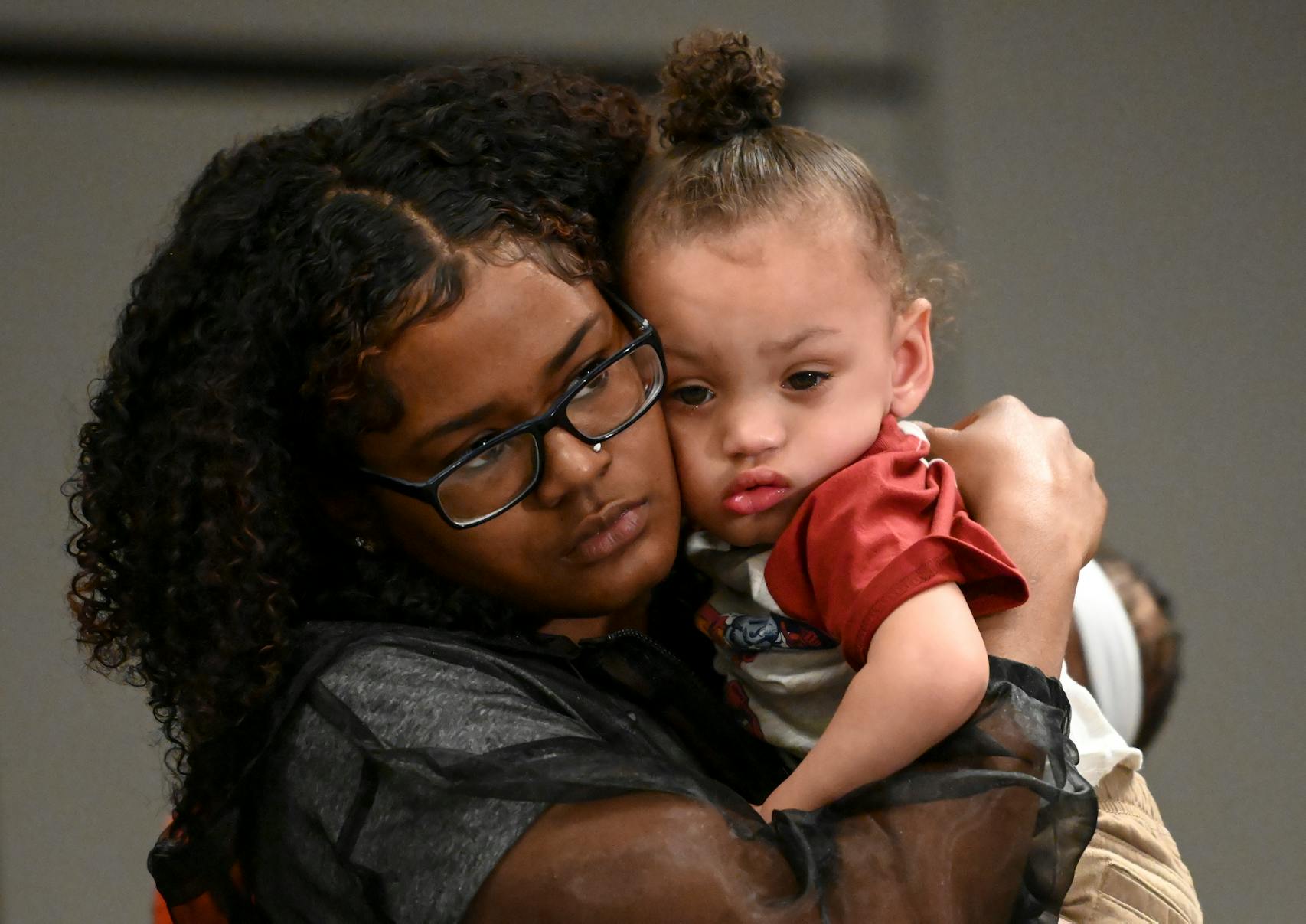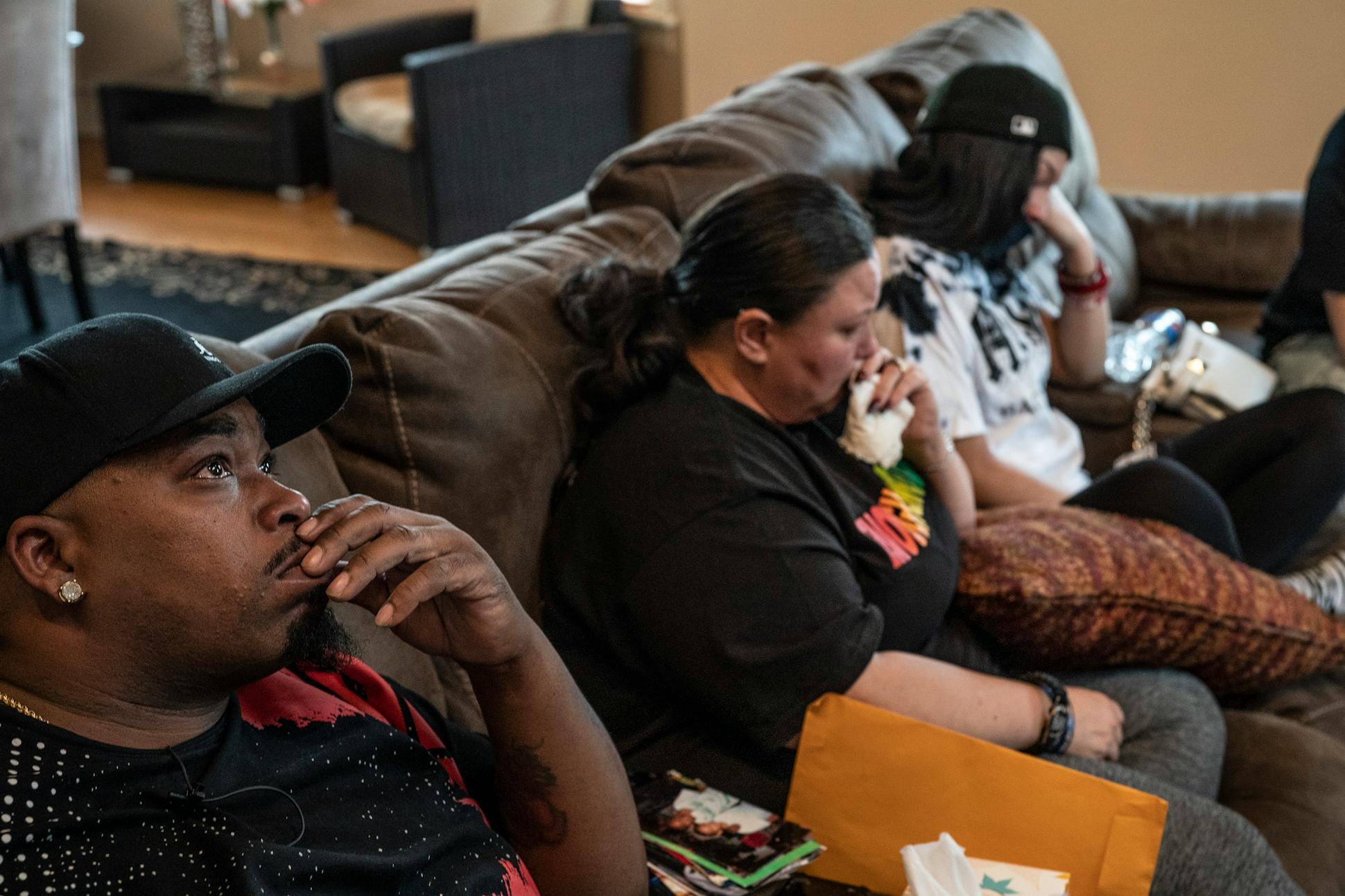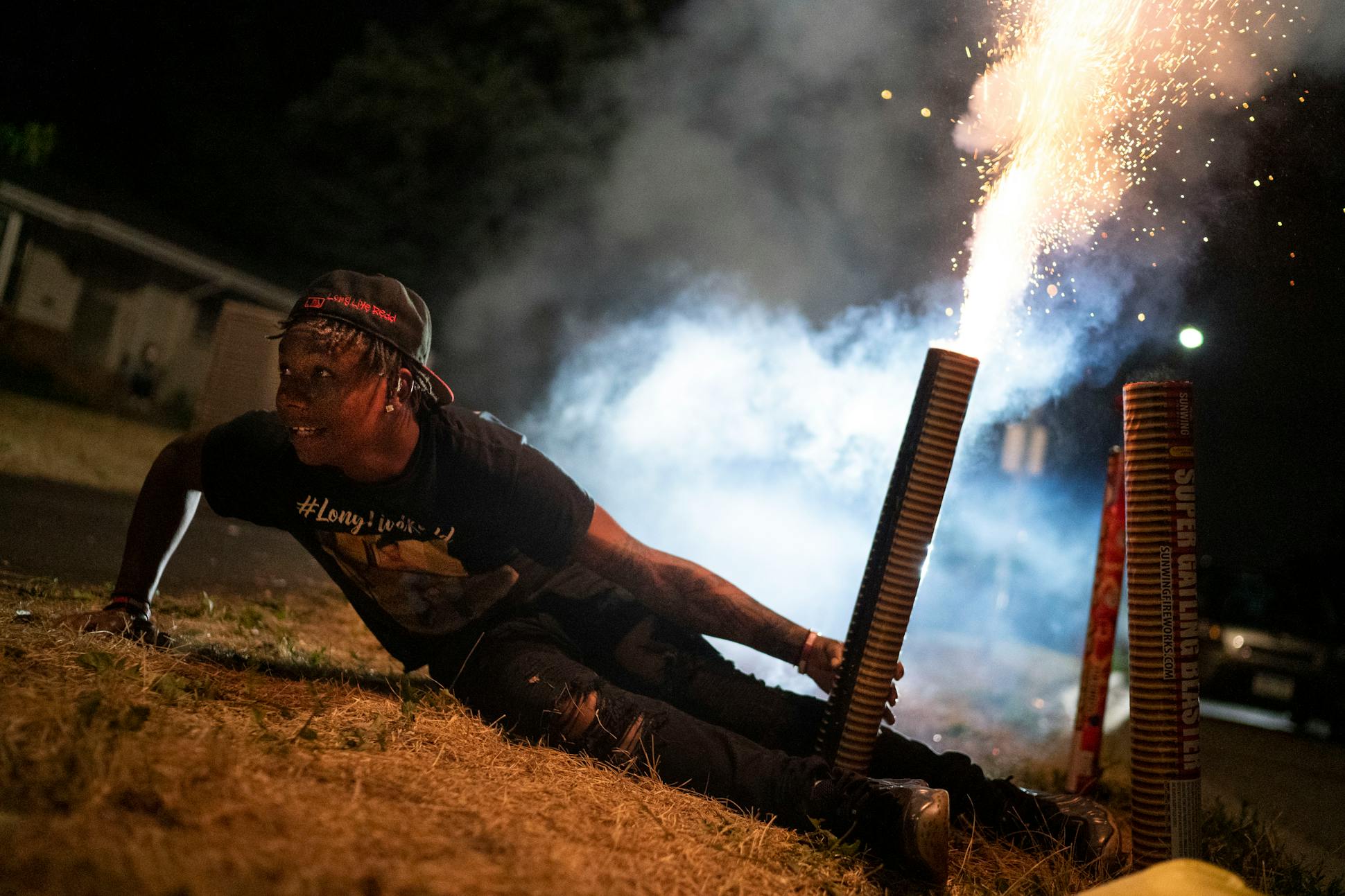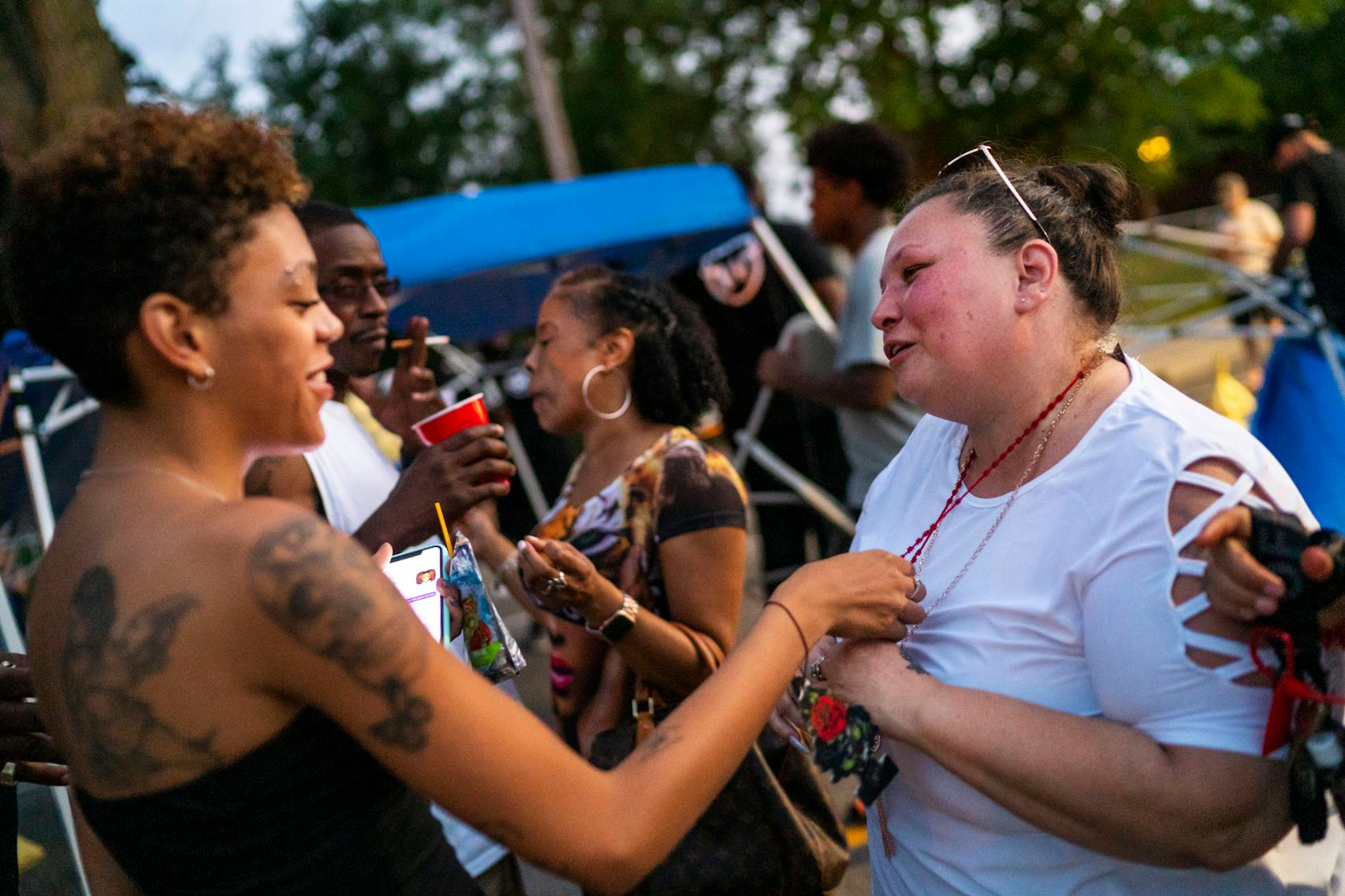At the Fourth of July party near his son's memorial, Aubrey Wright felt empty.
He and his wife, Katie, had rounded up fireworks. A chef was working three barbecue grills behind the sun shelters where they sat. A speaker the size of a suitcase was set on the street corner, belting out music.
But even as friends came forward one by one to greet Aubrey Wright, or as he doled out advice to young men who had known his son — "You got a job yet?" — he said it felt hollow.
"I'm looking at a picture of my son," he said, gazing at Daunte Wright's memorial. "People want to celebrate but I'm looking at a picture."
It has been four months since the family stood before a packed Shiloh Temple in Minneapolis to mourn their son. Attendees included the Minnesota attorney general, the governor, both of Minnesota's U.S. senators and U.S. Rep. Ilhan Omar. The Rev. Al Sharpton delivered the eulogy. Civil rights attorney Benjamin Crump spoke. A Grammy-winning trumpet player performed.
The Brooklyn Center police officer who fatally shot Wright during a routine traffic stop is scheduled to go on trial in November. She has pleaded not guilty to the charge of second-degree manslaughter.
But for Katie and Aubrey Wright and their six other children, the pain has not diminished. And as they grieve for their son, they are also being forced to contend with their role in a larger story about race and policing playing out across the country.
What the family learned in the days that followed Wright's death was that there's a difference — an enormous, heart-wrenching difference — between supporting the families of those killed by police and becoming the family that others are holding up.
"We never would have thought this would happen to us," Katie Wright said. "When we were watching the [George] Floyd stuff play out, our hearts were hurting for them. And now our hearts are hurting."
For a long time after Wright died, his father couldn't stop blaming himself.
Aubrey Wright replayed in his mind the talks they had, the ones every Black parent has with their child about how to act if a police officer pulls you over.
"The 'Yes, sir,' 'No, sir,' " Aubrey Wright said, his voice growing thick with emotion.
One time they sat in a car for hours, talking about the police.
"I remember we were talking about the George Floyd thing and I was like, 'Look, police are killing young men. You better be very careful.' "
Looking back, Aubrey Wright said he can't help thinking he could have better prepared his son for a police encounter.
"I know he was scared," he said of the traffic stop that killed him. "I know he was scared."
The video has been viewed millions of times by people around the world.
Brooklyn Center police had pulled Wright over for allegedly driving with expired tags when officers discovered a warrant for his arrest. Footage from former officer Kimberly Potter's bodycam shows that as officers attempted to handcuff Wright, he got back in the car.
A struggle ensued, and Potter pulled her handgun from her holster. She shouted, "Taser! Taser! Taser!" and then fired a single shot. The Brooklyn Center police chief, who resigned two days after the shooting, said Potter accidentally discharged her weapon.
"Holy shit!" she said as Wright drove off. "I just shot him!"
Wright drove several blocks before hitting another car and coming to a stop.
Katie and Aubrey Wright rushed to the scene and saw his body still lying in the street, surrounded by officers.
Their son had gotten himself in trouble in recent years, but they knew him as a loving person who wanted to help people, who urged his mother to give money to a man standing at an intersection asking for change. A son who was curious about life, who loved pets and pranking his siblings. He once brought home a stray cat and set it up with food and water in the family bathroom. When his pet rat, Bella, died, he cried "for a week straight," said his brother, Dallas Bryant. His Halloween-themed birthday parties, his Spider-Man and Batman phases, his goofiness — that's the person they knew.
But now it was as if they no longer controlled the story of their son.
The world's media, in the Twin Cities for the murder trial of Minneapolis police officer Derek Chauvin, turned its attention to Brooklyn Center. Protesters embraced Wright as yet another victim of racist policing of Black men. They emblazoned his face on signs and shouted his name through bullhorns in demonstrations that at times devolved into violent clashes with police.
At the same time, arguments raged across social media and elsewhere about Wright's actions once the police stopped him. Everything about his life that could easily be found in public records was pulled out and examined, used as a way to defend the police or, worse, mock the Wright family.
In the weeks after Wright's death, his family could not bear to go home and confront all the memories that waited for them there.
On April 20, they watched the verdict in the Chauvin trial from a hotel room. As the judge read out "guilty" on all three counts, Aubrey began to cry.
Daunte Wright was Katie and Aubrey Wright's first child together, and the first biracial child for them both.
There were obvious differences in their lives — Katie Wright is white and had grown up in Hudson, Wis.; Aubrey Wright is Black and had grown up primarily in St. Paul — but the two found similarities as well. They each had two children from previous relationships. They both shuttled between divorced parents' houses as children — Katie Wright would go to St. Paul and Aubrey Wright from his mother's house in St. Paul to his father's in Chicago each summer.
They started their new family in St. Paul. Aubrey Wright named their first child after his favorite Minnesota Viking, Daunte Culpepper. Within a few years they moved to Hudson, hoping for better schools and the charms of small-town life.
It lasted five years.
"I don't want to say that Hudson was a bad place to live," Katie Wright said, "but it wasn't for us."
Aubrey Wright said he was pulled over frequently. And there were the stares: at the grocery store, around town, so common that after a while he didn't like going out in public.
At some point they gave up, Katie Wright said. As she struggled to put her thoughts into words, Aubrey Wright urged her on: "Go ahead and say it!" he said.
"We realized it wasn't the best community for being a biracial family," Katie Wright said.
"There you go," Aubrey Wright said.
Walking away made more sense, and it's what Aubrey Wright has practiced in his adult life. His family remembers well the time at Applebee's in Cottage Grove when a man there, another customer, started calling him a racial slur.
The Wrights walked out.
"If nobody puts their hands on you, leave," Aubrey Wright said, repeating the lessons he's taught his kids.
They landed in north Minneapolis, and Daunte Wright enrolled at Cityview elementary school, where he met his best friend, Emajay Driver.
The two boys spent hours playing basketball at Cleveland Park. An 8-foot-high hoop meant that even Wright, a scrawny preteen, could slam dunk.
Wright spent years dreaming of becoming a professional basketball player — making it as far as a center on the Edison High School team — but eventually his dream changed: He wanted to be a hip-hop artist.
"He was hitting me up every day trying to go to the studio," Driver said.
Katie Wright said she and her husband would look through Daunte's notebooks to check on his schoolwork but would instead find rap verses. They found pieces of paper around the house with lyrics — some good, others less so.
"We didn't say he was good at it," Aubrey Wright said, laughing.
Daunte Wright's parents encouraged him to pursue a more stable career.
"We originally wanted our sons to go into the Army," Katie Wright said. "And then, honestly, before this all happened we kind of pushed them to do law enforcement, believe it or not."
Wright, who ultimately did not graduate from high school, worked minimum-wage jobs: a dishwasher at Golden Corral in Maple Grove, salesman at the Mall of America Foot Locker working under his father, and most recently at Taco Bell in Coon Rapids.
His family saw Wright picking up jobs and figuring things out but, according to allegations laid out in court records, he was making serious mistakes, too.
In December 2019, Wright was charged with first-degree aggravated robbery after a woman he knew accused him of trying to rob her at gunpoint.
The trial was scheduled for this August. If convicted, Wright faced a prison sentence of up to 20 years.
In the summer of 2020, Wright ran from two Minneapolis police officers when they stopped a car he was riding in. A loaded Ruger .45 caliber handgun left in the car was Wright's, another passenger told police. He didn't have a permit for the gun and faced two misdemeanor charges for it. The officers said in their report that they recognized Wright from other interactions they'd had with him.
Wright missed his first court appearance April 2 and a warrant was issued that day — the warrant that Brooklyn Center police say came up when they pulled him over on April 11 and ran a search.
Katie Wright said she was aware, like any mother would be, of her son's brushes with the law. He confided in her, and she counseled him. She asked him what was going on, and whom he was hanging out with.
"Just giving him that motherly advice," she said.
After he died, Wright's criminal history became fuel for online commentators who said his death was his fault. If only he had complied.
For his family, he was more than the sum of his mistakes. They've heard the people who judged their son. They've seen the vilification online.
"My son did no crime that was punishable by death," Katie Wright said.
Another more damning allegation about Daunte Wright appeared within weeks of his death. In a lawsuit, Wright is blamed for the 2019 shooting of Caleb Livingston, which left the now 18-year-old with permanent disabling injuries. Minneapolis police never charged Wright in the shooting and had no comment on the active investigation.
The lawsuit, which comes as the Wright family stands to win a police settlement potentially worth millions of dollars, doesn't provide evidence of Wright's involvement.
"It really hurts us as a family," Katie Wright said. "To run with allegations like that is pretty bad whether they are true or not true."
She hopes it's not true.
"I'm not going away," she said. "I don't care if 70,000 other people said 'Daunte did this and did that.' He did not deserve to die."
Their son became a father himself in 2019, when Daunte Jr. was born. The boy, who recently turned 2 years old, now lives with his mother, Chyna Whitaker.
Daunte Jr. was born at 28 weeks, a preemie with an 80 to 90% chance of survival. Wright called his mother often, "asking a million questions and just so concerned that Daunte Jr. wasn't going to make it and if Chyna was going to be OK."
Wright seemed to embrace fatherhood, another sign for Katie and Aubrey Wright that their son was maturing. A favorite photo shows a smiling Daunte Wright holding Junior up, their faces cheek to cheek.
Katie Wright was napping with Junior on April 11 when Daunte asked her for some money to get the car washed.
He called from the road to say he had been pulled over.
Wright told his mother that police said it was for an air freshener. The police later said it was for expired license tags. Within minutes, Potter had fired her gun.
Katie Wright said the police shooting of her Black, biracial son has brought her to her own personal reckoning with race.
"I've seen racism and I've seen police brutality," she said. "But now that I've physically been through it, it just opened up my eyes wider to the fact that we have a big, big problem."
Katie Wright said it's heartbreaking watching a second summer of unrest in the Twin Cities. Seeing activists out in the streets hits close to home.
"It brings me back to April 11 when they were doing the exact same thing for my son," she said. "We're still trying to push for Daunte, but at the same time we're adding names to the list."
Though fleeting, the focus on Wright drew attention from Minnesota's top leaders. Attorney General Keith Ellison announced May 21 that his office will prosecute the Potter case. The Wright family was invited to the governor's residence May 19 to have breakfast with Gov. Tim Walz and First Lady Gwen Walz.
The family wants Potter, who has been charged with second-degree manslaughter, to face the same charges as Chauvin.
Aubrey Wright said the charges against Potter are "bogus" and believes the system is trying to protect her.
"We truly in our hearts believe she murdered our son," Katie Wright said.
Boom! A firework exploded high above the Daunte Wright memorial at 63rd Avenue N. and Kathrene Drive in Brooklyn Center. The July 4 party was nearly over, with a few fireworks left to set off.
Katie Wright had had one surprise guest: the woman who was with Daunte Wright when he was shot. It was the first time she had come to meet his parents, and Katie Wright hugged her under the street sign that someone had painted to say "Daunte Drive."
They stood near the memorial and spoke within view of hundreds of air fresheners people had hung from a nearby fence. The Black power fist that was originally erected at George Floyd Square sat at the center of the memorial.
"I still miss him," Aubrey Wright said. "It sounds weird, but I still worry about him. I was praying the other night, 'God, is he OK up there?' "
Wright said he was thankful for the day. He didn't want a larger crowd, though. Family and friends was enough.
It was getting close to 10 p.m. The city said the Wrights would need to remove traffic barriers by then.
Aubrey Wright said goodbye to one of the last guests, then walked toward his son's memorial with a broom in hand to sweep up firework debris.

